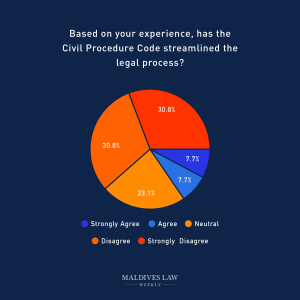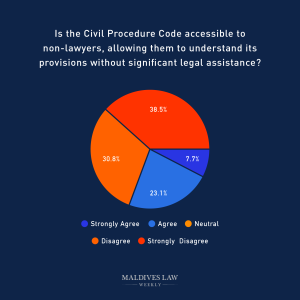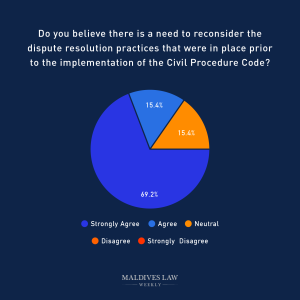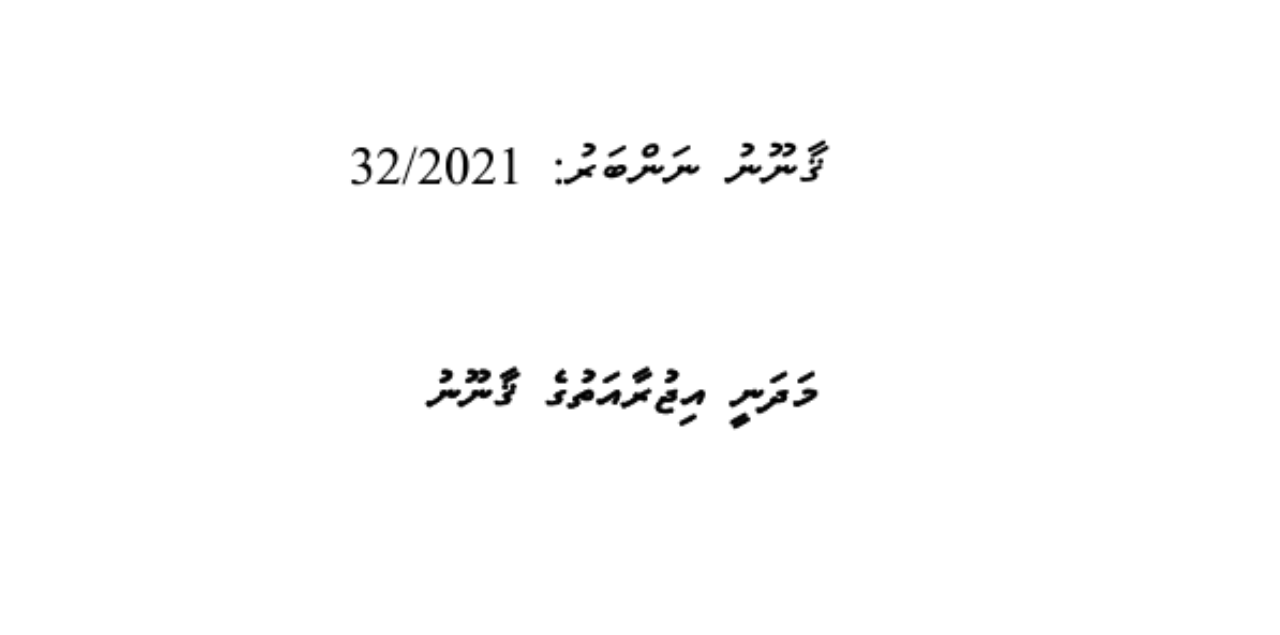A Review of the Maldives Civil Procedure Code: Two Years Later
The Maldives Civil Procedure Code (CPC), a cornerstone of the Maldivian legal system, was ratified in 2022, marking a significant step towards streamlining legal processes and enhancing access to justice. The revised code, which came into effect in June 2022, aims to facilitate the fair, transparent, and timely resolution of civil cases.
As Maldives introduced a new Civil Procedure Code on June 16th, 2022, the country sought to modernize its legal system and expedite case resolution. To assess the effectiveness of these reforms, we surveyed local lawyers, posing four questions to seek their insights into whether the CPC was fulfilling the desired outcomes.
Based on your experience, has the Civil Procedure Code streamlined the legal process?
While some lawyers perceive a simplification of legal procedures, a substantial majority remain dissatisfied. Only 15.4% of respondents agreed or strongly agreed on this aspect, contrasting with 61.6% who disagreed or strongly disagreed.

Is the Civil Procedure Code accessible to non-lawyers, allowing them to understand its provisions without significant legal assistance?
The code appears largely inaccessible to non-lawyers, hindering their ability to understand and navigate the legal system. A significant majority (69.2%) of lawyers disagreed or strongly disagreed that the code caters to non-legal users. This finding underscores the need for the legal system to be more inclusive and accessible to all, regardless of legal expertise.

If you were to reform the Civil Procedure Code, what specific change would you implement?
Lawyers offered a range of reform suggestions, including:
- Simplified Procedures: Reducing the number of forms, streamlining processes, and incorporating technology to enhance efficiency.
- Promoting Alternative Dispute Resolution (ADR): Encouraging pre-action protocols and other ADR mechanisms to facilitate early dispute resolution.
- Improved Accessibility: Making the legal system more accessible for non-lawyers through simplified forms, clear language guides, and readily available legal resources.
Do you believe there is a need to reconsider the dispute resolution practices that were in place prior to the implementation of the Civil Procedure Code?
A strong consensus emerged among surveyed lawyers regarding the need to reconsider dispute resolution practices predating the revised CPC. A significant majority, 84.6%, either strongly agreed or agreed on the necessity for reevaluation. This finding reflects a growing recognition of the potential benefits of alternative dispute resolution (ADR) mechanisms, such as mediation and arbitration, in various legal systems around the world. These mechanisms often offer more efficient, cost-effective, and less adversarial ways to resolve disputes, potentially leading to improved access to justice and reduced strain on court systems.

The survey findings indicate that while the Civil Procedure Code has made some progress in streamlining legal processes and enhancing access to justice, significant challenges remain. The code’s complexity and inaccessibility to non-lawyers are particularly problematic.
The survey also highlights the need for further reforms to address specific issues, such as improving dispute resolution mechanisms and streamlining procedures. By addressing these shortcomings, the Maldives can continue to modernize its legal system and ensure that justice is accessible, efficient, and fair for all.
